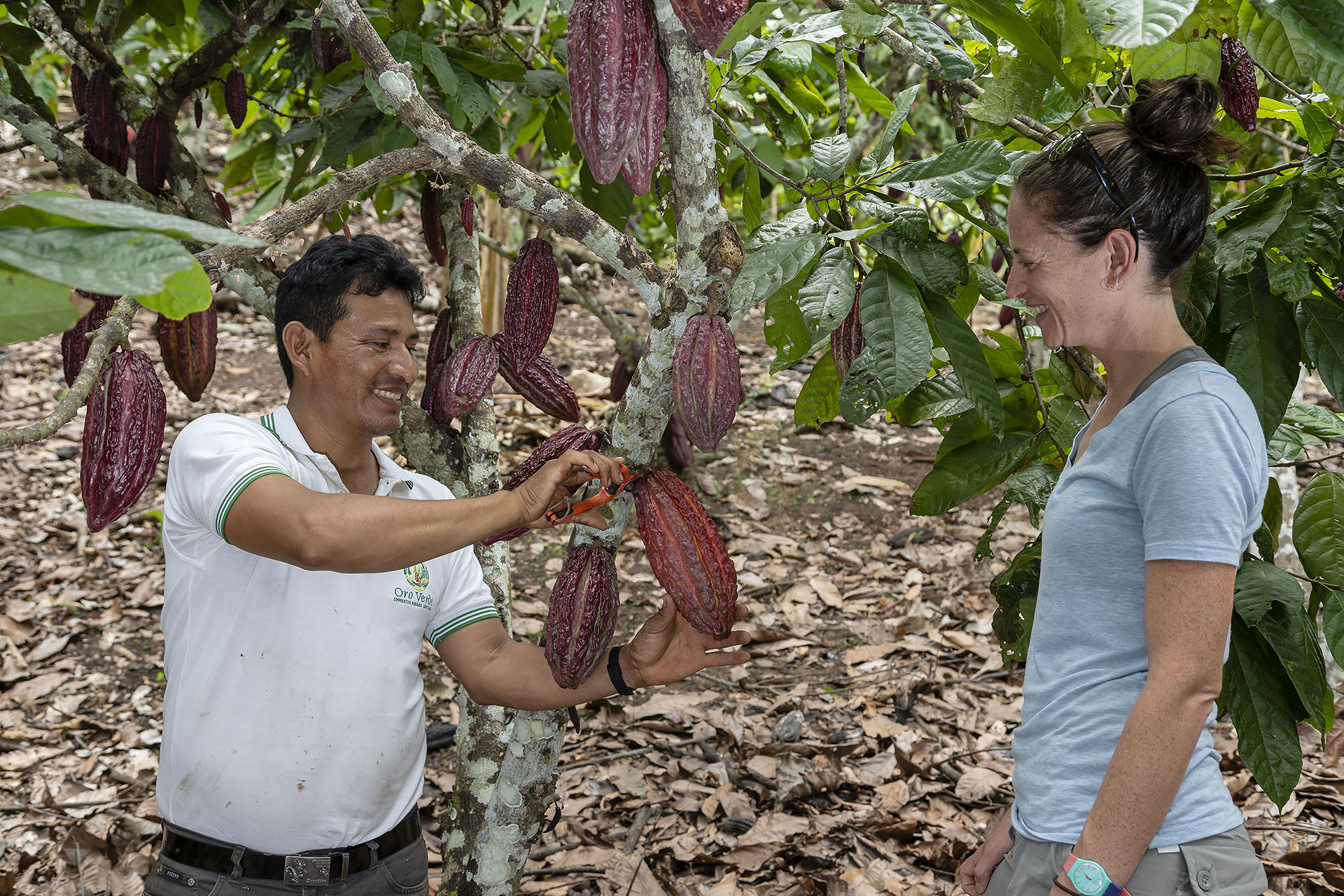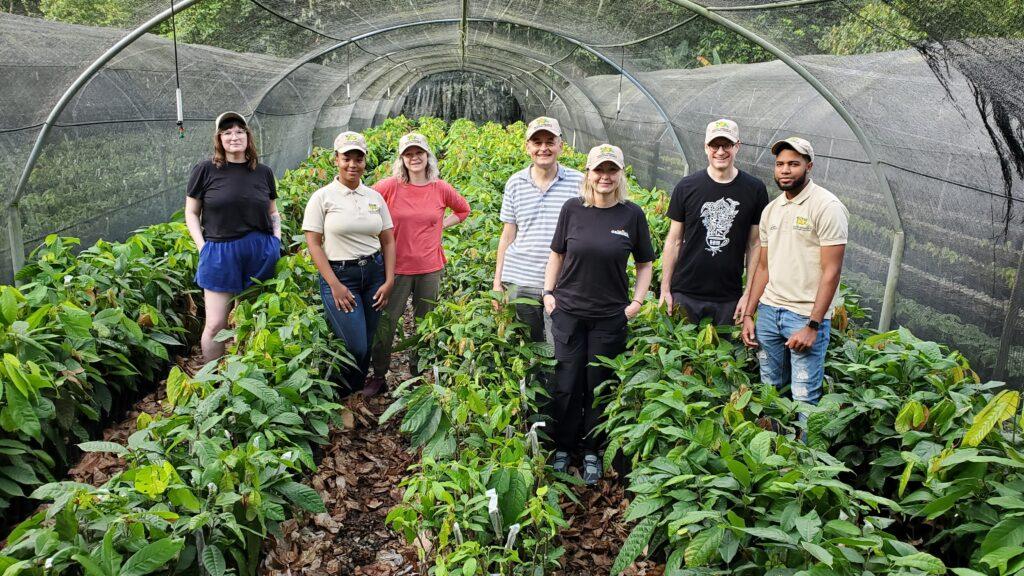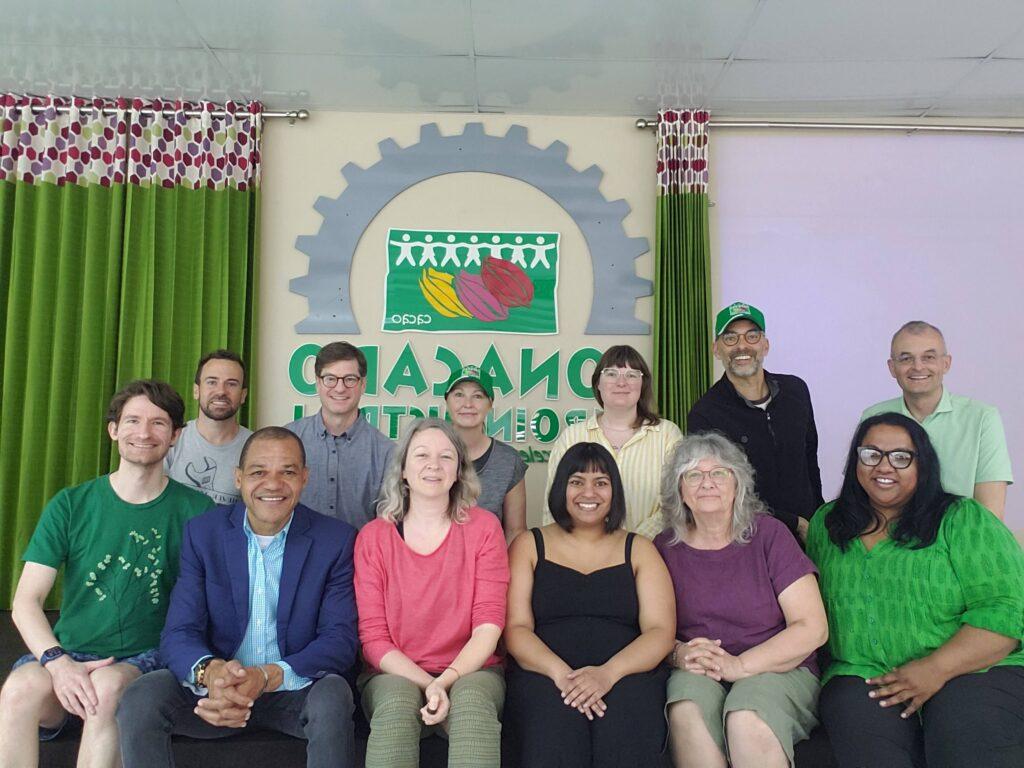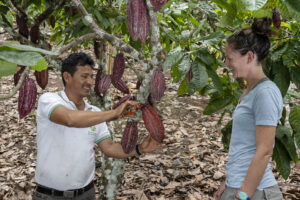
During a seven year period, cacao farmer co-operatives collaborated with solidarity enterprises and development agencies to increase organic farm productivity, establish quality standards for cacao beans, and build equity programs for small scale farmers. This is a story of co-operation among co-operatives and grassroots change. Many of the fairly traded, organic cacao beans in Camino chocolates are provided by the organizations involved. When you chose Camino during the past decade, you voted with your dollars to support the farmers who create this change.
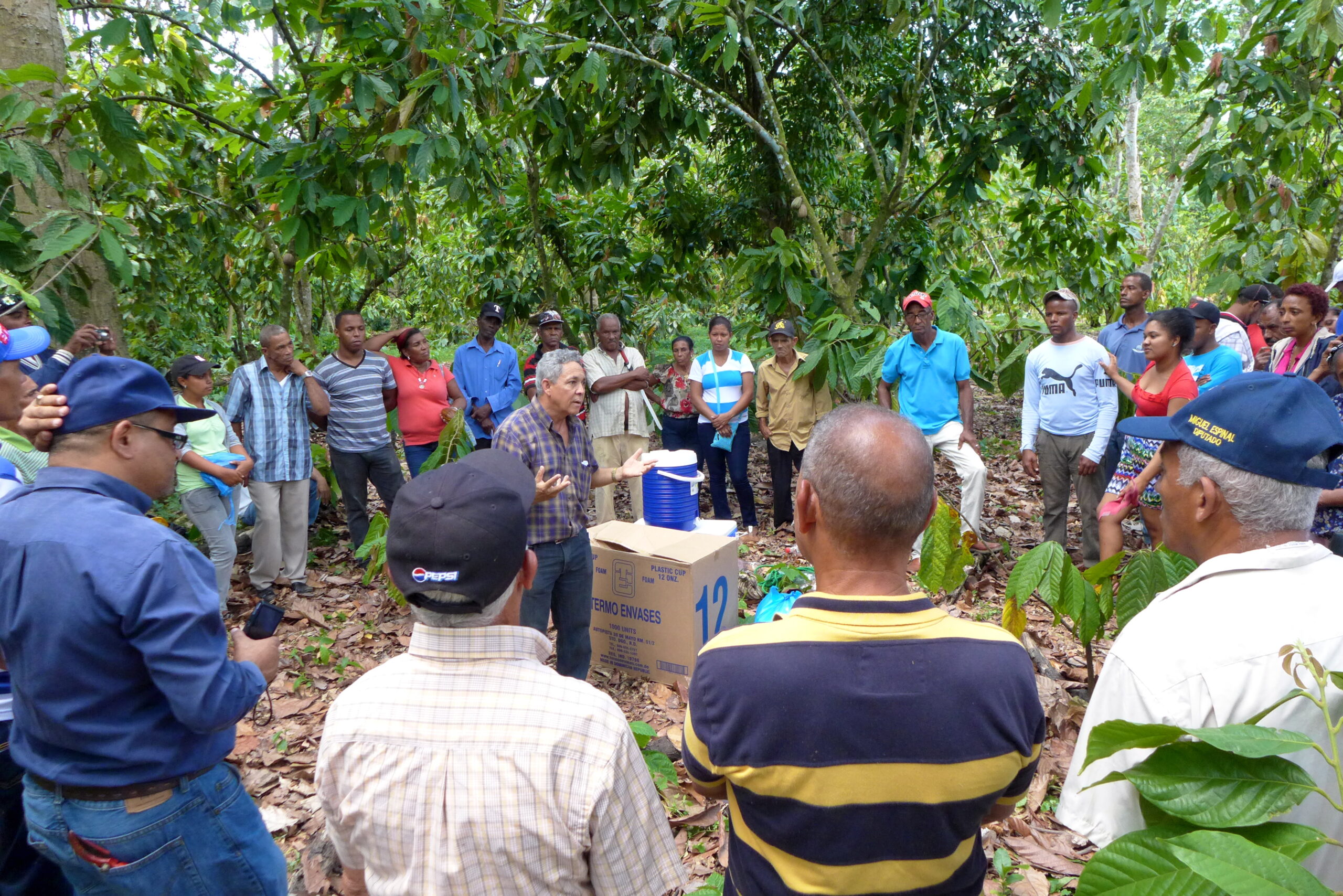
For small-scale farmers to succeed in international markets, their co-operatives must not only collect and process their crops, but must also provide them with the technical assistance that helps them to raise productivity levels, add quality and thus value to that product through improved post-harvest procedures and quality controls, and gain their loyalty and patronage with member education and equity programs.
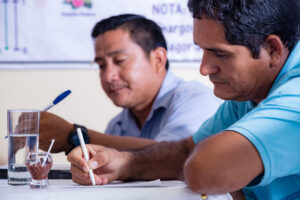
This theory of change was embraced by Fortaleza del Valle (Ecuador) ACOPAGRO, Oro Verde, and Norandino (Peru), and CONACADO (Dominican Republic) during a multi-year collaboration with international solidarity companies including Equal Exchange (US). The collaboration reached over 19,000 democratically organized small-scale farmers and posted an impressive number of achievements described below. ACOPAGRO Project Manager David Contreras praised the approach, noting, “Inclusive means that we can participate and opine, that we not only receive instructions and methodologies from our buyers, but that we can become familiar with our product and know its value.”
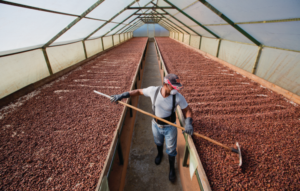
Peer-to-peer learning was the key to success. Farmers practised techniques and then took the time to share the new knowledge with neighbours and growers in other countries. Co-op staff shared information and cross-trained at the sister organizations. The results were impressive:
- Productivity increased by 85% overall across the five co-operatives.
- $6.5 million in quality premiums were generated through quality improvements on the farm, at the processing levels, and at the co-operatives’ ability to market their specialty cacao.
- New sensory analysis techniques were developed and codified by farmers and importers working together and over 3400 cacao samples were analyzed by the co-operatives.
- Revenue among the five co-ops increased over 40% during the seven year period.
- $5.5 million in member equity and savings was generated by the co-operative farmers.
- An average of 90% of members are selling crop through their respective co-operatives.
- Cacao co-operatives greatly diversified their customer base and are generating additional premiums for cacao quality.
- All five co-operatives are producing value-added products like chocolate and cocoa powder.
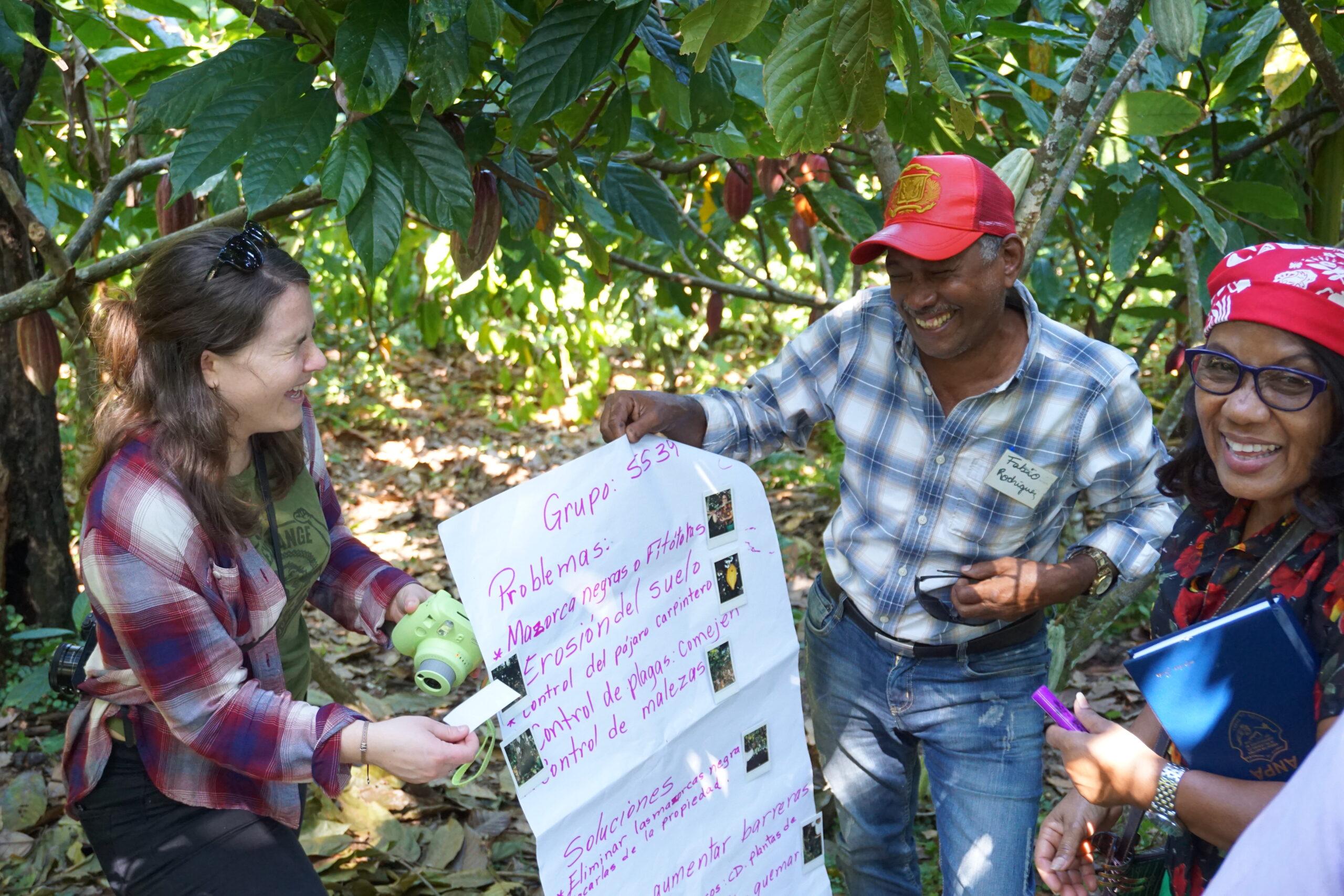
Julia Baumgartner, a co-author of the final report on the seven-year project, shares, “I’ve been working with co-operatives in Latin America for over ten years. From my experience coordinating the Co-operative Development Program, what was especially motivating to me was watching the cacao and coffee co-operatives come up with innovative solutions to dealing with each unique challenge. Allowing the co-operatives to be creative and experiment with different solutions has greatly contributed to the impact this program was able to achieve.“
https://equalexchange.coop/usaid-cooperative-development-program
